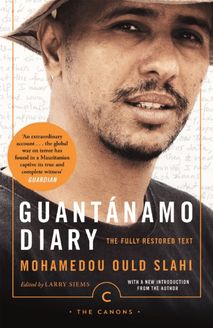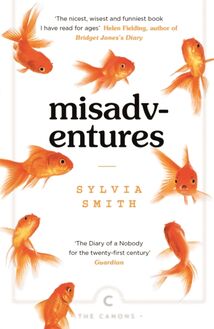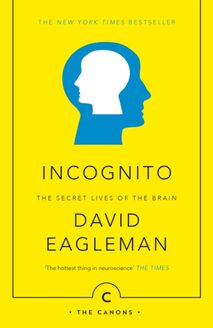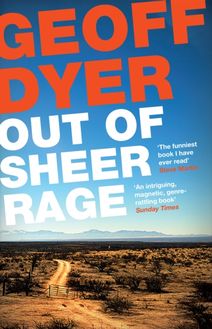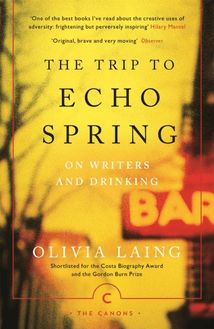-
 Univers
Univers
-
 Ebooks
Ebooks
-
 Livres audio
Livres audio
-
 Presse
Presse
-
 Podcasts
Podcasts
-
 BD
BD
-
 Documents
Documents
-
- Cours
- Révisions
- Ressources pédagogiques
- Sciences de l’éducation
- Manuels scolaires
- Langues
- Travaux de classe
- Annales de BEP
- Etudes supérieures
- Maternelle et primaire
- Fiches de lecture
- Orientation scolaire
- Méthodologie
- Corrigés de devoir
- Annales d’examens et concours
- Annales du bac
- Annales du brevet
- Rapports de stage
La lecture à portée de main

Vous pourrez modifier la taille du texte de cet ouvrage
Découvre YouScribe en t'inscrivant gratuitement
Je m'inscrisDécouvre YouScribe en t'inscrivant gratuitement
Je m'inscrisEn savoir plus
Vous pourrez modifier la taille du texte de cet ouvrage
En savoir plus

Description
Sujets
Informations
| Publié par | Canongate Books |
| Date de parution | 25 septembre 2009 |
| Nombre de lectures | 0 |
| EAN13 | 9781847674760 |
| Langue | English |
| Poids de l'ouvrage | 1 Mo |
Informations légales : prix de location à la page 0,0400€. Cette information est donnée uniquement à titre indicatif conformément à la législation en vigueur.
Extrait
Athol Fugard is one of the world's greatest living dramatists. His career spans over fifty years of playwriting, stage and film acting, and directing. He has worked in South Africa, on and off Broadway and in London. Tsotsi is his only novel.
The Canons edition published in Great Britain in 2019 by Canongate Books
First published in Great Britain in 2009 by Canongate Books Ltd, 14 High Street, Edinburgh EH1 1TE
This digital edition first published in Great Britain in 2009 by Canongate Books
First published in Great Britain in 1983 by Penguin Books Ltd
First published in the USA in 1980 by Random House, Inc.
First published in South Africa in 1980 by Ad. Donker (Pty) Ltd
canongate.co.uk
Introduction copyright © Jonathan Kaplan, 2006
The right of Athol Fugard to be identified as the author of this work has been asserted by him in accordance with the Copyright, Designs and Patents Act 1988
British Library Cataloguing-in-Publication Data
A catalogue record for this book is available on request from the British Library
ISBN 978 1 78689 615 5
eISBN 978 1 84767 476 0
CONTENTS
Introduction, by Jonathan Kaplan
Tsotsi
The Birth of Tsotsi
About the Author
Introduction
J ONATHAN KAPLAN
‘Tsotsi’ was a style. Young black men in Johannesburg’s townships, entranced by 1940s American gangster films, adopted their dress-sense along with their contempt for law and order. ‘Life was cheap; the gun and the knife ruled at night’, recalled Nelson Mandela in his autobiography Long Walk to Freedom . ‘Gangsters – known as tsotsis – carrying flick-knives or switchblades were plentiful and prominent; in those days they emulated American movie stars and wore fedoras and double- breasted suits and wide, colourful ties.’ The word tsotsi may have been derived from an Africanisation of ‘zootsuit’, or perhaps it came from the Sesotho term ho tsotsa , meaning ‘to make sharp’. Besides a look, it evolved its own argot, tsotsitaal , a fluid amalgam of phrases from the Babel of languages prevailing in South Africa, with regional variations; in one township Afrikaans-based, in another structured on Zulu.
It is this range of cultural influences that illuminates Athol Fugard’s plays, his dialogue a richly idiomatic mix of English, Afrikaans and African languages that expresses to the South African ear explicit gradations of social standing. Born in the eastern Cape in 1932, near the village of Middelburg in the arid Karoo, Harold Athol Lannigan Fugard was the child of a father of English descent and an Afrikaner mother. His childhood was spent in the company of the black workers in the tearoom run by his family in the town of Port Elizabeth. The racial discrimination that he observed while growing up would eventually set into the rigid ideology of apartheid, whose consequences have provided the baleful energy behind much of Fugard’s writing.
Ever since the 1913 Land Act, which appropriated 77 per cent of the country for white use, successive South African governments had refused to recognise blacks as having residence rights in the townships that sprang up as labour dormitories around the cities. With workers unable to have their families live with them, the resulting social pressures brought prostitution, illegal drinking dives – shebeens – and crime. The phenomenon of township gangsterdom surged in the 1940s, during the great shift to the cities that accompanied burgeoning industrialisation during the Second World War. The authorities made little attempt to understand its causes, preferring only to shut it away from the white cities. In the first post-war election, in 1948, white voters, fearful of an increasingly competitive black workforce, elected the Afrikaner Nationalist Party, which made a barricade of apartheid statutes: influx controls, the Pass Laws, the Group Areas Act.
Aimed at halting black urbanisation, these restricted freedom of movement by permitting blacks to be in the townships only as long as they ministered to white needs. A pass was required to get work. Those caught without one faced prison and deportation back to the jobless black rural ‘homelands’. Avenues of legitimate employment became scarce for township youth. Forced into an underground existence, criminality offered a chance for survival; only the most ruthless might thrive. By the late 1950s, when Fugard wrote this book, tsotsis had become the scourge of people’s already straitened lives in the townships. They preyed on their fellow Africans, robbing, murdering and raping with impunity, for the authorities did little to keep order in the townships apart from the constant ratissage of the Pass raids.
As a child in South Africa I heard about tsotsis and grew up with an impression of their menace, a force of unbridled violence as pitiless and unthinking as the sharks that lay in wait outside the nets off Durban beach. Beyond the perimeter of our ‘civilised’ white euphoria – guarded, we were told, by the thin blue line of the South African Police – lay the township world, shadowy and unfathomable. Tsotsis were its predators, killers with a superlative attention to mortal detail. In my years as a medical student I saw their victims delivered to us with the neatest of wounds. We learned to inspect the collapsed patient for the almost invisible puncture in the armpit from a sharpened bicycle spoke, slipped between the ribs into the heart to cause a tamponade: a squirt of blood into the pericardial sac that as it filled, pressed on the heart, strangling it in its own labour.
Our professors credited these assassins with almost mystical powers of evil, a hermeneutic knowledge of anatomy and physiology that allowed them to calibrate precisely the dimensions of the suffering they wrought. Sometimes, instead of murder, a lancet blade or knife- edged spoke would be stuck into the spine at the exact level to achieve a specific outcome – paraplegia, quadriplegia, with or without the ability to achieve an erection. In these cases the blade was sterilised before use so that vengeance would not be thwarted by an early death from infection.
It was while studying medicine that I first saw Fugard perform. In 1972 he’d been involved in the establishment of a theatre called The Space/Die Ruimte/Indawo in a converted warehouse below Cape Town’s old Malay Quarter, where I watched him play opposite his regular collaborator, Yvonne Bryceland, in the theatre’s opening production. Statements after an Arrest under the Immorality Act explored the deformity of human love wrought by authoritarian power – in this case the notorious piece of apartheid legislation officially termed the Prohibition of Mixed Marriages Act – which banned sexual contact, indeed all forms of intimacy, between people of different racial groups.
Fugard himself had had personal experience of the machinery of repression when his passport was revoked by the South African government in 1967 ‘for reasons of state safety and security’, following the production of an earlier work, The Blood Knot , on British television. The first of his plays to be publicly performed – in Johannesburg, in 1961 – The Blood Knot introduced a central theme of Fugard’s work; the struggle of people trapped in bonds of family, love or dependency, oppressed by systems to which they lack the keys of analysis or insight. He had written it over the previous two years, at the same time that he was setting down his only novel, Tsotsi .
Tsotsi had its genesis in Fugard’s rare insight (for a white South African) into the brutality of the apartheid system. Arriving in Johannesburg in 1958 from Port Elizabeth, he had taken the first job available: as a clerk in a Native Commissioner’s Court that dealt with violations of the Pass Laws. ‘Seeing the machinery in action,’ he said, ‘taught me how it works and in fact what it does to people.’ Further understanding came with his introduction to Sophiatown, Johannesburg’s violent, colourful ghetto: ‘… tremendous poverty, a capacity for humour that was almost proverbial, bitterness and hope’.
Sophiatown was a ‘freehold’ township where blacks had historically been allowed to own title to their properties. Its lively jazz and shebeen subculture, where black and white could drink and dance together, formed the febrile centre of an urban African renaissance of music and theatre. The government now set about suppressing this creative independence. Pass raids were stepped up to catch those blacks in the township who were ‘surplus to labour requirements’. Black writers and musicians found themselves banned or forced into exile. Under the Group Areas Act, Sophiatown was ‘re-zoned’ as a white suburb – to be called Triomf (Triumph) – and its demolition began, the area’s long-established neighbourhoods relocated block by block to the grim wasteland of the new South Western Townships, Soweto.
The pressures of survival under extreme conditions had been the motif of Fugard’s first ‘Township’ plays, No-Good Friday (1958) and Nongogo (1959). These were ‘workshop’ productions with amateur actors that used the lives of Sophiatown characters – a jazz musician, a gangster, an aspiring student, a shebeen queen – to reflect apartheid’s damage. The effect of its unsparing regime of humiliation, he suggested, was to abort hope and drive the persecuted to turn on those lower down the survival chain. The character of Fugard’s Tsotsi is a product of this implacable process.
We are introduced to his murderous protagonist as he is about to nominate the night’s victim: ‘… the youngest of the four, the one who had said the least, the one they called Tsotsi, leaned forward and brought his slim, delicate hands together, the fingers interlocked in the manner of prayer. The others looked at him and waited.’ Tsotsi’s gang, his apostles, are a drunkard, a psychopath and a thug. Few that reside in this subterranean world have the hope of salvation, inclu
Attention
En entrant sur cette page, vous certifiez :
- 1. avoir atteint l'âge légal de majorité de votre pays de résidence.
- 2. avoir pris connaissance du caractère érotique de ce document.
- 3. vous engager à ne pas diffuser le contenu de ce document.
- 4. consulter ce document à titre purement personnel en n'impliquant aucune société ou organisme d'État.
- 5. vous engager à mettre en oeuvre tous les moyens existants à ce jour pour empêcher n'importe quel mineur d'accéder à ce document.
- 6. déclarer n'être choqué(e) par aucun type de sexualité.
YouScribe ne pourra pas être tenu responsable en cas de non-respect des points précédemment énumérés. Bonne lecture !
-
 Univers
Univers
-
 Ebooks
Ebooks
-
 Livres audio
Livres audio
-
 Presse
Presse
-
 Podcasts
Podcasts
-
 BD
BD
-
 Documents
Documents
-
Jeunesse
-
Littérature
-
Ressources professionnelles
-
Santé et bien-être
-
Savoirs
-
Education
-
Loisirs et hobbies
-
Art, musique et cinéma
-
Actualité et débat de société
-
Jeunesse
-
Littérature
-
Ressources professionnelles
-
Santé et bien-être
-
Savoirs
-
Education
-
Loisirs et hobbies
-
Art, musique et cinéma
-
Actualité et débat de société
-
Actualités
-
Lifestyle
-
Presse jeunesse
-
Presse professionnelle
-
Pratique
-
Presse sportive
-
Presse internationale
-
Culture & Médias
-
Action et Aventures
-
Science-fiction et Fantasy
-
Société
-
Jeunesse
-
Littérature
-
Ressources professionnelles
-
Santé et bien-être
-
Savoirs
-
Education
-
Loisirs et hobbies
-
Art, musique et cinéma
-
Actualité et débat de société
- Cours
- Révisions
- Ressources pédagogiques
- Sciences de l’éducation
- Manuels scolaires
- Langues
- Travaux de classe
- Annales de BEP
- Etudes supérieures
- Maternelle et primaire
- Fiches de lecture
- Orientation scolaire
- Méthodologie
- Corrigés de devoir
- Annales d’examens et concours
- Annales du bac
- Annales du brevet
- Rapports de stage
